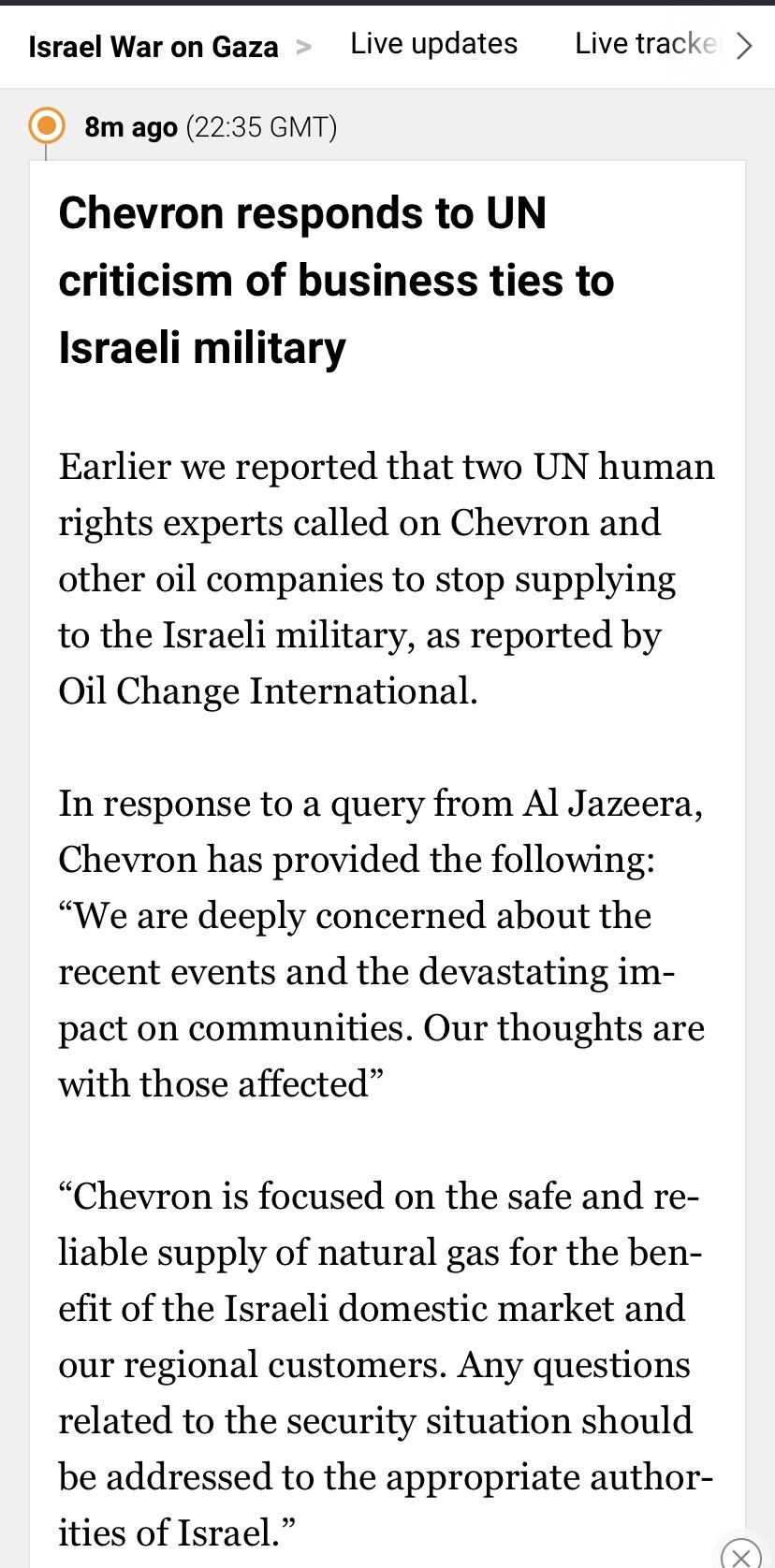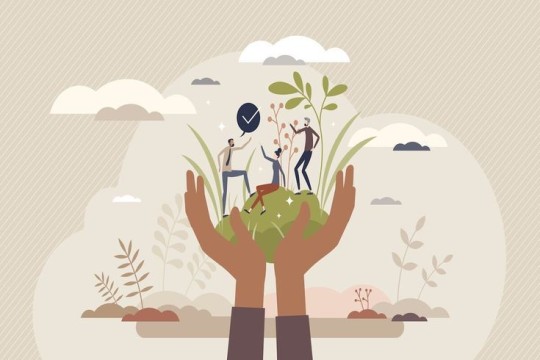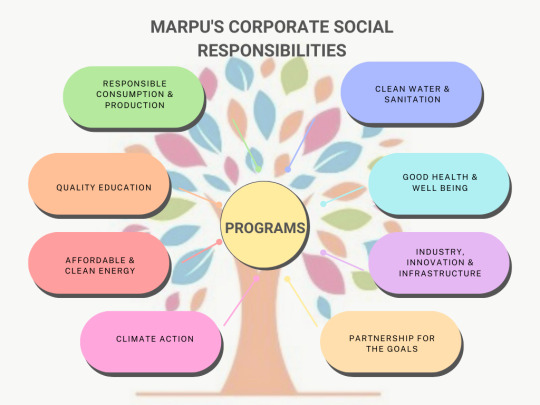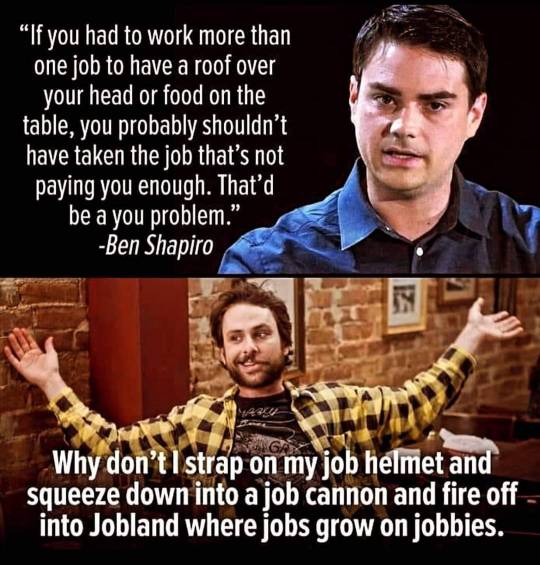#Corporate social responsibility
Explore tagged Tumblr posts
Text
Weyland-Yutain and neither confirm or deny what happened with the Nostromo. But they can make you a better manager
#alien romulus#alien franchise#alien 1979#alien#alien vs predator#matt storrs#comedy#movies#management#leadership#corporate#corporate social responsibility#weyland yutani
8 notes
·
View notes
Text


#chevron#people over profit#free palestine#palestine#gaza#free gaza#current events#israel#us politics#gaza genocide#usa are supporting genocide#usa news#usa#gasoline#oil#stop funding genocide#stop funding israel#stop genocide#stop israel#fake sympathy#corporate greed#corporate social responsibility#boycott#boycott chevron#boycott for palestine#boycott israel#israel is committing genocide#cop out#world news
25 notes
·
View notes
Text
Sam Delgado at Vox:
Over the last century, people have started demanding more from the businesses where they shop. Whether it be a pair of jeans or the food on their plates, consumers want to know that what they’re buying isn’t just good quality but also ethically and sustainably made. In the early 20th century, groups like the National Consumers League and the now-defunct League of Women Shoppers organized consumers to take advantage of their power in an effort to improve labor protections and the rights of workers in the United States. Today, ethically minded consumers are also motivated by climate change and animal rights, as the consequences of our overconsumption have become clearer.
Fast-forward 90 years and the global marketplace has become exponentially more complex. Globalization has remade how and where corporations make products. If it was difficult for activists at the turn of the 20th century to identify ethically made products, the challenge to the modern consumer is even greater. You might think regulations or legislation could compel companies to produce more ethically made goods. But ultimately, no one government is responsible for a supply chain that crosses borders and oceans. In a globalized economy, nobody is in charge. So “corporate social responsibility” — or the idea that companies can hold themselves accountable — emerged, responding to this consumer demand. In practice, corporate social responsibility can look like companies donating to charities every year, committing to net-zero emissions by a certain date, or focusing on labor practices. To prove they’re doing this work, companies will partner with nonprofits or hire third-party consultants to audit their supply chains, and then measure and report their progress in annual reports, press releases, and on their websites.
[...] Corporate social responsibility went mainstream during the new wave of globalization and the growth of multinational corporations that followed in the second half of the 20th century. As these businesses expanded their reach and production speed, they sought to cut their costs by contracting cheaper labor in other countries with weak worker protections. This idea of outsourcing wasn’t necessarily new. Businesses in the US already had a history of moving to Southern states where they knew corporate regulation was more relaxed and labor would be less expensive, made possible by the racist legacy of slavery and Jim Crow laws. A century later, new technology — particularly the internet — made it even easier for companies to scale up and outsource their operations. By moving overseas, companies could obscure unsafe working conditions from American consumers, who might’ve known very little about how their products were being made.
But public awareness of the costs of globalization started to grow in the early 1990s, thanks to stories and reports from human rights organizations and newsrooms that laid out the abysmal working conditions and standards of major brands, often in their factories overseas. Nike, the world’s biggest shoe seller, faced backlash after multiple stories came out about grueling conditions and the use of child labor in its contracted factories, sparking boycotts and protests against Nike from consumers and activists alike. Businesses saw how consumers could rise against them if they weren’t careful about what went on in their supply chains, leading to more companies developing their own voluntary corporate social responsibility initiatives to address their environmental and social impacts.
Today, corporate social responsibility programs are widespread. They often refer to commitments a company makes toward a particular area of social impact, like diversity, ethical sourcing, or the environment. It usually looks like this: A company will set goals around one or more of these areas, assess its progress, and then publish its results. To legitimize these programs, companies will hire social auditing firms, seek certifications from multi-stakeholder initiatives (MSIs) like the Fair Labor Association or Fair Trade to show they meet certain standards, or develop codes of conduct around labor and human rights. Such programs matter to consumers, and they’re willing to pay more for sustainably made products — and hey, if something is good for both the world and for business, what’s the harm?
Corporate social responsibility in practice
Corporate social responsibility is everywhere today, driven by consumer demand and a growing socially conscious workforce. One 2023 study found that over 80 percent of companies are increasing their budgets for sustainability initiatives. Chief sustainability officers are now common, and more companies are disclosing the exact factories their products are made in and the reported conditions. But it’s hard to know how honest or effective these programs really are at protecting labor and the environment. Part of the issue is they’re voluntary. While companies must comply with local, federal, and international laws, that’s the end of their legal obligations. Beyond that, there’s no requirement for corporate social responsibility programs to show their methodology or metrics for calculating their progress and no obligation to release all results from a social audit. A company can change its corporate social responsibility programs at any point, or drop them entirely. [...]
The rise of worker-driven social responsibility
Around the same time that corporate social responsibility was taking off in the 1990s, a group of farmworkers in a rural Florida town called Immokalee had a meeting that would challenge the status quo, from the bottom of the supply chain all the way to the top. The farmworkers were Mexican, Guatemalan, and Haitian migrants, and they harvested buckets of tomatoes in grueling conditions for as long as 12 hours a day, receiving poverty wages for providing crucial produce to US grocery stores and restaurants. The fields they worked in were rife with verbal and physical abuse, sexual harassment, wage theft, and, in the worst cases, involuntary servitude. Tired of the exploitation they encountered in the fields, the Immokalee farmworkers discussed how they could really change the way things were done. This 1993 meeting marked the beginning of the Coalition of Immokalee Workers (CIW) and, later on, the first ever worker-driven social responsibility program. Lucas Benitez, one of the founders of the CIW, told me that, at first, the farmworkers thought their employers, the tomato growers, had all the power. “Then we came to see and recognize what was essentially an invisible hand that was putting that pressure further and further down on the supply chain,” Benitez said via an interpreter. “That started at the top, because it’s those retailers that fundamentally dictate to growers the conditions under which that food is being produced. And so that’s really where the power lay, and so that’s where we turned.” In 2001, the CIW set its sights on Taco Bell and called for a boycott over the reportedly abysmal conditions in its tomato supply chain. Four years later, Taco Bell signed an agreement that included vital demands from the CIW: Taco Bell would pay a premium for its tomatoes that would go directly to workers’ paychecks, it would only buy from growers who met the code of conduct that protected workers, and this would be monitored and enforced by an investigative body with help from the CIW. It was all backed by a legally binding contract. A binding contract is crucial to worker-driven social responsibility, a sharp contrast to those toothless corporate social responsibility initiatives.
Vox takes a look at the worker-driven social responsibility trend.
#Economy#Labor#Diversity#Corporate Social Responsibility#Worker Driven Social Responsibility#Workers' Rights
11 notes
·
View notes
Text
Social CRM: Engaging Customers Across Platforms for Better Relationships
In today’s digital landscape, where consumers engage with brands across various social channels, the importance of Social Customer Relationship Management (Social CRM) cannot be overstated. By effectively utilizing Social CRM strategies, businesses can foster deeper relationships with customers, enhance engagement, and drive loyalty, all while navigating the complexities of multiple platforms.…
#best practices for brand management#Branding strategies for small businesses#building brand loyalty#business growth strategies#corporate social responsibility#creating a strong brand identity#CRM#customer relationship management#Customers#digital marketing for startups#e-commerce tips for businesses#Engaging#how to scale your business.#how to start a successful business#importance of social media for businesses#influencer marketing for brands#Platforms#Relationships#small business funding options#Social#top business trends 2024
2 notes
·
View notes
Text
"Marpu Foundation's Role in Shaping Corporate Responsibility"
In today's dynamic world, the line between profit and purpose is fading, giving rise to a new era of corporate social responsibility (CSR). It's no longer just about making money; it's about making a difference. Imagine a world where businesses not only excel in their industries, but also uplift communities, champion environmental sustainability, and foster social equality. This is the inspiring reality that the Marpu Foundation , led by national youth awardee Mr. Kadigiri Raghu vamsi, is striving to create through innovative partnerships with forward-thinking corporations. In this article, we'll explore how these collaborations are reshaping the CSR landscape, driving meaningful change, and setting a new standard for what it means to be a responsible corporate citizen. Let's dive in and discover how these visionary initiatives are transforming the business world for the better!
Corporate social responsibility is a hot topic, and according to the United Nations it's all about businesses stepping up to make a positive impact on society, the environment, and their stakeholders. CSR represents the commitment of businesses to contribute to the well-being of the community from which they derive their resources.
The World Business Council for Sustainable Development defines corporate social responsibility (CSR) as a commitment by businesses to contribute to economic development while improving the quality of life of the workforce and their families, as well as that of the community and society at large.
"Marpu" is a transformational non-governmental organization that amplifies the voices of unheard individuals. In 2020, it was recognized as the best NGO in India and has established strong partnerships with prestigious organizations to collectively fulfil corporate social responsibilities. The Marpu Foundation runs various impactful projects focusing on sustainable development goals, volunteerism, and innovative solutions such as ecological awareness. With a presence in 15 states and 39 locations, the organization is dedicated to achieving environmental, economic, and social development goals, as well as fostering partnerships for overall progress. It emphasizes the equilibrium between social responsibility and business, offering diverse opportunities for philanthropy through donations, corporate partnerships, volunteering, internships for skill development, and community service experiences.
With a clear vision, @marpufoundation is dedicated to making a positive impact on society by providing valuable insights and setting great examples for all. This involves fostering a meaningful exchange of services between society and development, creating a better future for all involved.

2 notes
·
View notes
Text
a única notificação do microsoft teams que eu gosto é de quando uma reunião é remarcada
#brazil#brblr#brasil#rip twitter#twitter#microsoft#national teams#microsoft teams#corporate social responsibility
4 notes
·
View notes
Text

Maximizing the impact of Corporate Social Responsibility: A Partnership with Marpu Foundation
Uniting Corporate Social Responsibility and Sustainability Goals for a Sustainable Future In the landscape of modern business, combining Corporate Social Responsibility (CSR) and Sustainability Goals (SDG) is not just a trend, but a strategic one necessity. The Marpu Foundation, with its innovative approach to sustainable development, is a beacon for companies that are trying to strengthen the impact of their social responsibility.
The Synergy Between Corporate Social Responsibility and Sustainable Development Goals
CSR initiatives are no longer limited to charity; they are strategic business needs that align with the broader goals of Sustainable Development. The synergy of social responsibility and sustainability goals is based on their shared vision of a sustainable future. Corporate Social Responsibility is a means by which companies can contribute to the global agenda of the Sustainable Development Goals, which encompasses a range of goals from poverty alleviation to environmental protection.
Marpu Foundation's Unique Approach
Marpu Foundation has created a niche market for CSR by adopting an empathetic approach to sustainability. Their mission is to harness the human potential for positive change and adhere to several Sustainable Development Goals, including clean water and sanitation, affordable and clean energy and quality education.

Success Stories That Inspire
Marpu Foundation's success stories are proof of its effective model. They were recognized at the 2022 NGO Awards as "NGO of the Year - Power Environment", underscoring their commitment to environmental protection and sustainability. More than 12 million volunteers participated in their projects, demonstrating the power of collective action to achieve the goals of sustainable development.
Impact of Collaboration
The collaboration between companies and the Marpu Foundation can lead to impressive CSR initiatives that not only meet the company's goals, but also significantly contribute to the achievement of sustainability goals. Marpu's broad reach and strong partnerships enable them to meet various CSR goals, meaningfully engage employees and create value for all stakeholders.
Conclusion: Crafting a Sustainable Legacy Partnering with the Marpu Foundation offers companies the opportunity to be part of the change. By connecting CSR with the Sustainable Development Goals, companies can create a legacy of sustainability that resonates with consumers, investors and communities alike. It's time to embrace this synergy and make a lasting impact on our world.
Always Remember that, “We make a living by what we get, But we make our life by what we give”
To learn more about how your company can partner with the Marpu Foundation, visit their website or follow their social media channels for the latest updates and success stories.
#marpu foundation#corporate social responsibility#sustainable living#ngoindia#environmental activism
2 notes
·
View notes
Text
Every morning I wake up with no spoons it feels like i go into a money tornado filled with spoons and i grab a handful (maybe) and as soon as i step out someone steals all my spoons
2 notes
·
View notes
Text

Anchuli Felicia King is a Thai-Australian playwright and multidisciplinary artist. (ABC Arts: Teresa Tan)
Playwright Anchuli Felicia King had to leave Australian theatre in order to conquer it.
By Dee Jefferson
ABC Arts - 31 October 2019
•
•

David Koutsouridis is an award-winning Australian comedy writer based in Los Angeles. (Supplied)
Aussie writer on Hollywood picket lines says strike is pivotal for global entertainment industry.
By Mawunyo Gbogbo
ABC News - 7 June 2023
•
•

Our local industry is being shaped and shaken up by the international streamers, including Netflix who produced the reboot of Heartbreak High. (Netflix)
As the US actors' and writers' strike continues, how does the Australian screen industry measure up?
By Hannah Reich for Stop Everything!
ABC Arts - 19 September 2023
#Arts culture & entertainment#Australia#USA#Multiculturalism#Race relations#Social justice#Gender equity#Theatre industry#Film industry#Television & Radio industry#Screen media#Writers#Actors#Multidisciplinary artists#Media streaming companies & services#Trade Unions#Industrial relations#Industrial action#US writers’ & actors' strike#Corporate social responsibility#Globalisation & technology#AI - Artificial Intelligence#Internet culture#Anchuli Felicia King#David Koutsouridis
5 notes
·
View notes
Text
Within disability rights organizations, the presence of board members and corporate partners who have contributed to and profited from militarism can act as an obstacle to having intersectional discussions and actions around militarism and ableism. A central example is Mitsubishi, a group of Japanese multinational companies that also has headquarters in the U.S., which frequently appears as a sponsor or partners with various disability organizations in the U.S. In 1991, the Mitsubishi Electric America Foundation (MEAF) was established with a $15 million endowment from Mitsubishi Electric Corporation and the Mitsubishi Electric U.S. group companies and provided grants to multiple disability programs in the U.S. However, Mitsubishi is well-known for its engagement in militarism in collaboration with Japanese colonialism and imperialism: It has contributed to militarized violence across the globe.
#Disability#Ableism#CSR#Corporate social responsibility#Disability justice#Disability rights#Truthout#Mitsubishi#America#Japan#War#NPIC#NGOs#Theory#Non profit industrial complex#I kept all the links in from the original#I just made them longer and more descriptive#To read
2 notes
·
View notes
Text
Does Coca-Cola owe back taxes on "hidden profits" in Britain and other countries, too?
Let's check it out and get the money...£££££

When you see a corporation not pay $16 BILLION in taxes, remember those corporations are funding Republican politicians who want you to be upset with immigrants and migrants.
#britain#uk#coca cola#tax the billionaires#taxation#taxes#tax the rich#corporate greed#fuck corporations#corporate social responsibility
42K notes
·
View notes
Text
Unlocking E-Commerce Success: Proven Tips for Growing Your Online Store
In today’s digital realm, the e-commerce landscape continues to expand at an impressive rate, making it essential for online store owners to devise effective strategies for growth. With an influx of competition, having a solid grasp of the best practices can be the difference between success and obscurity. In this comprehensive guide on Unlocking E-Commerce Success: Proven Tips for Growing Your…
#best practices for brand management#Branding strategies for small businesses#building brand loyalty#business growth strategies#corporate social responsibility#creating a strong brand identity#customer relationship management#digital marketing for startups#e-commerce tips for businesses#ECommerce#Growing#how to scale your business.#how to start a successful business#importance of social media for businesses#influencer marketing for brands#Online#Proven#small business funding options#Store#Success#Tips#top business trends 2024#Unlocking
0 notes
Text
It's never the fault of employers, of the government, or of the capitalist system which exploits most working people....
...it's YOU... you're the problem, of course.

"You probably shouldn't have taken the job."
- the exact same people who complain when no one wants to take the job anymore
#minimum wage#low pay britain#poverty gap#profiteering#poverty uk#pension poverty#employment#work til you're dead#workers rights#greedy bosses#corporate greed#fuck corporations#corporate social responsibility#big business
8K notes
·
View notes
Text
#Adapting#agroforestry#Benefits#Biodiversity#Carbon Footprints#carbon sequestration#Climate Change#conservation#corporate social responsibility#Decarbonization#Environmental conservation#Forests#Future#green guardian#Green House Emissions#Green infrastructure#Indian#Oxygen#Plantation#Pollution#Reforestation#saveearth#Sustainable agriculture#Trees
0 notes
Text
Transforming Lives Through Corporate Social Responsibility Activities
Discover how Corporate Social Responsibility Activities are transforming lives by fostering sustainable development, education, and healthcare. Explore impactful CSR activities that create positive change for communities and businesses alike. Learn more about the power of responsible corporate engagement.
0 notes
Text
M Lhuillier’s OPEC T’nalak, staying true to its mission of empowering communities and nurturing the potential of youth, organized an inspiring basketball workshop and turnover ceremony in Barangay Lam-apos, Banga, South Cotabato. The event brought together aspiring young athletes and local leaders, under the visionary leadership of the OPEC T’nalak’s dedicated team. This milestone event fostered skill development and underscored the organization’s steadfast commitment to community upliftment and youth empowerment.
#basketball charity event#community outreach#corporate social responsibility#sports for a cause#MLhuillier charity basketball
0 notes